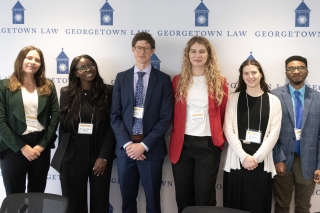Knauss legislative fellowships in Congress help build careers — and they're fun and educational. See our video and fact sheet for details.
Coasts, Climate, and the Law: What We Learned at the Chesapeake Rising Symposium
How can we help coastal communities in their quest to adapt to climate change? It was a warm day in early April when scientists, lawyers, policymakers, and students coasted into Washington, D.C., and convened at the Georgetown Climate Center to wade through that pressing environmental question.
Communities in the Chesapeake Bay and Mid-Atlantic regions face the challenges of sea level rise, flooding, extreme weather events, and land erosion. Finding and addressing the gaps in science, law, and policy is vital to navigate this shifting landscape and to shore up our coastal communities against climate change. Through a grant from the National Sea Grant Law Center, Maryland Sea Grant partnered with the Environmental Law Institute and Georgetown Climate Center to host a symposium on legal issues, barriers, and strategies for climate change adaptation. They held the Chesapeake Rising: Innovative Law and Policy Solutions for Climate Adaptation in Coastal Communities symposium on April 2, 2025.
The symposium brought together more than 80 lawyers, scientists, policymakers, government officials, professors, and students. They discussed the law and policy challenges that coastal communities face and how to overcome them. The day included keynotes, panels, lightning talks, and breakout discussions.
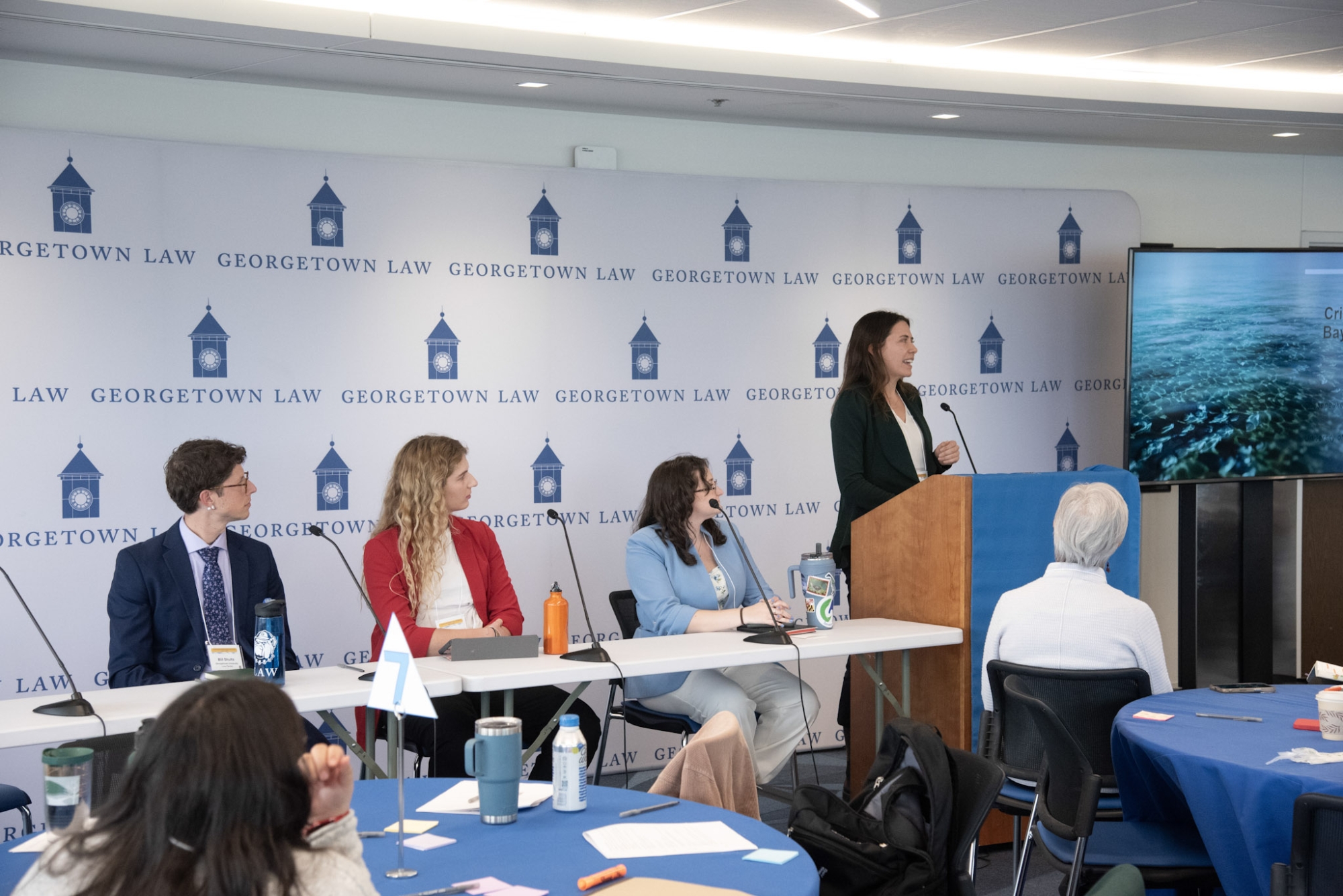
To bring new voices into the conversation on coastal adaptation, six law students and recent graduates shared their research on policy gaps and potential solutions. They had the opportunity to network with experts and peers throughout the day. In the coming months, these young professionals will develop their work into law review articles for publication in the Sea Grant Law & Policy Journal.
The symposium’s morning session focused on the governments and agencies that manage the Chesapeake Bay across states and at the federal level, and how this governing structure affects climate resilience. The afternoon session shifted focus to challenges at the local and municipal levels, as well as the role of private landowners in climate adaptation in the Bay.
Secretary Serena McIlwain of the Maryland Department of the Environment kicked off the event with a keynote address highlighting the importance of information, education, and engagement with landowners. She touched on themes that would be echoed by others throughout the day, including community engagement, advocating for stronger regulations and policies, creating science-driven policies, investing in resilient infrastructure, and leaving no one behind.
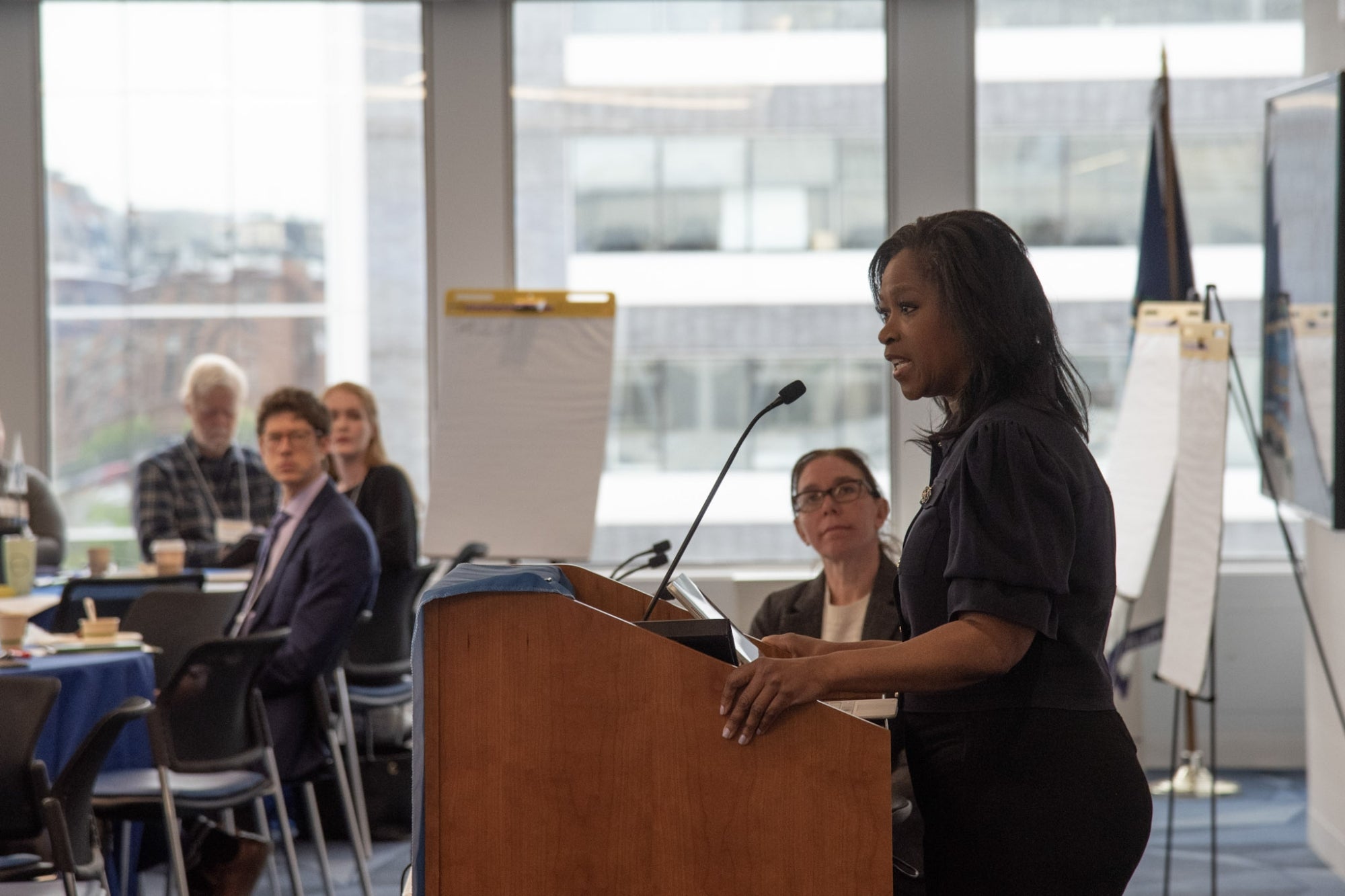
Panelists Anna Killius, executive director of the Chesapeake Bay Commission, and Emily Steinhilber, director of climate resilient coasts and watersheds, Virginia for the Environmental Defense Fund, discussed strategies to address funding changes and bipartisan policies within the Chesapeake Bay region. These are important considerations in climate discussions, as climate impacts extend beyond the environment to affect health, housing, development, and more. Creating a central coordinating body within state government can streamline efforts across agencies, making climate work more efficient and effective.
On a smaller scale, localities and private landowners play just as vital a role in shaping a community’s responses to climate adaptation. Jon Mueller, director of the Environmental Law Clinic at the University of Maryland Carey School of Law, remarked that natural disasters like Hurricane Katrina became a tipping point for many people, revealing the direct and devastating impacts of climate change on coastal communities. He believes litigation, often steered by new generations, will become the driving force for powerful new common law that demands stronger climate-focused policies.
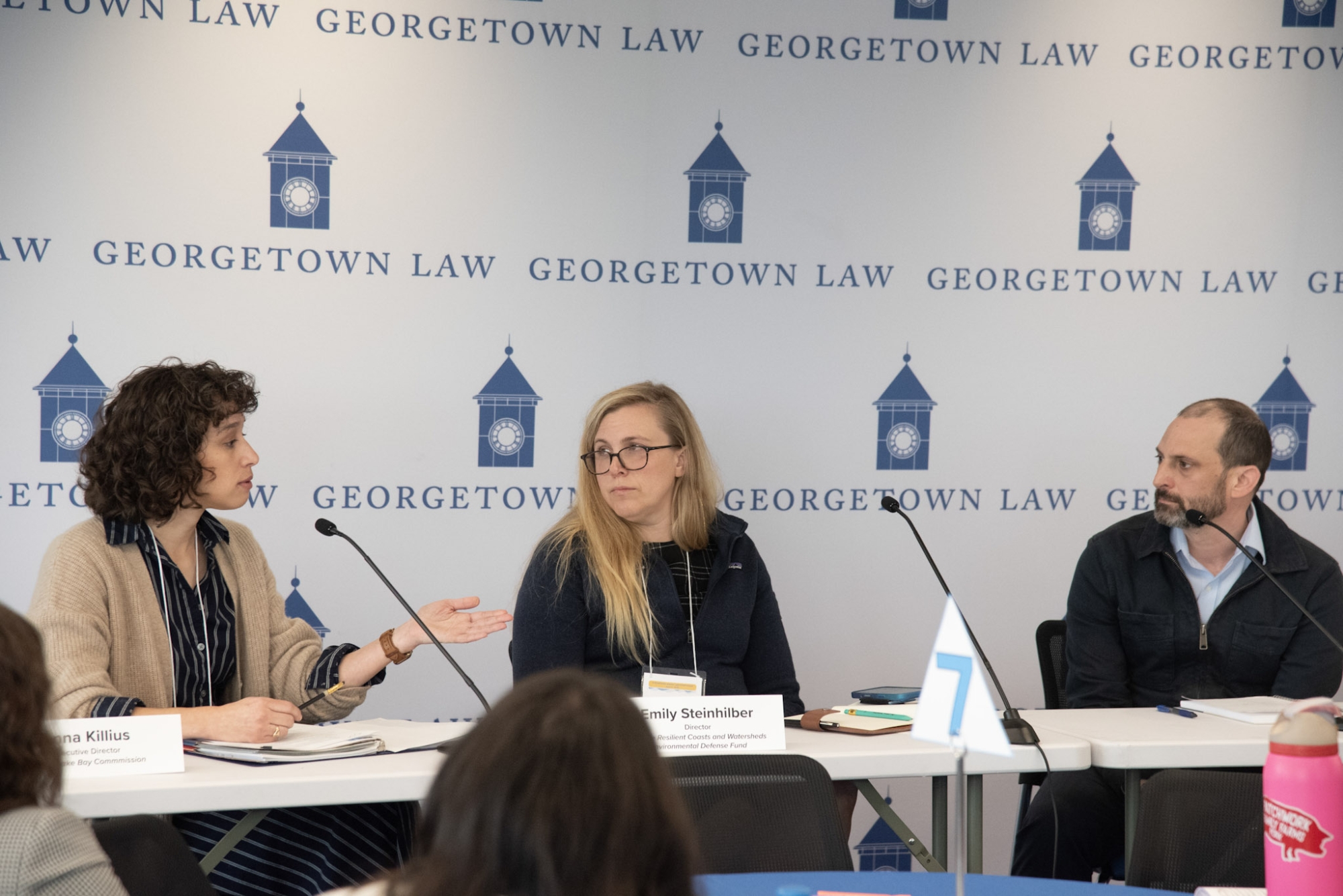
His fellow panelists, Steve Kline, president and CEO of the Eastern Shore Land Conservancy, and Molly Mitchell, assistant professor at the Virginia Institute of Marine Science, homed in on the role that living shorelines (a nature-based erosion control method) and tidal marshes play in preventing soil erosion and land subsidence. Kline also expanded on the challenges of educating landowners about living shorelines, determining which type of living shoreline is appropriate in an area, and, most importantly, financing the project. He used the example of a living shoreline recently installed on private property that cost about $5,000 per linear foot.
In her afternoon keynote, Vicki Arroyo, Georgetown Law professor from practice and former associate administrator for policy at the US Environmental Protection Agency, reiterated the themes of funding, building trust with communities, and fostering public and political engagement. She shared the proverb, “If you want to go fast, go alone. If you want to go far, go together,” highlighting the role of purposeful and prolonged engagement with communities in climate change adaptation. Understanding the science, laws, or policies alone is inadequate.
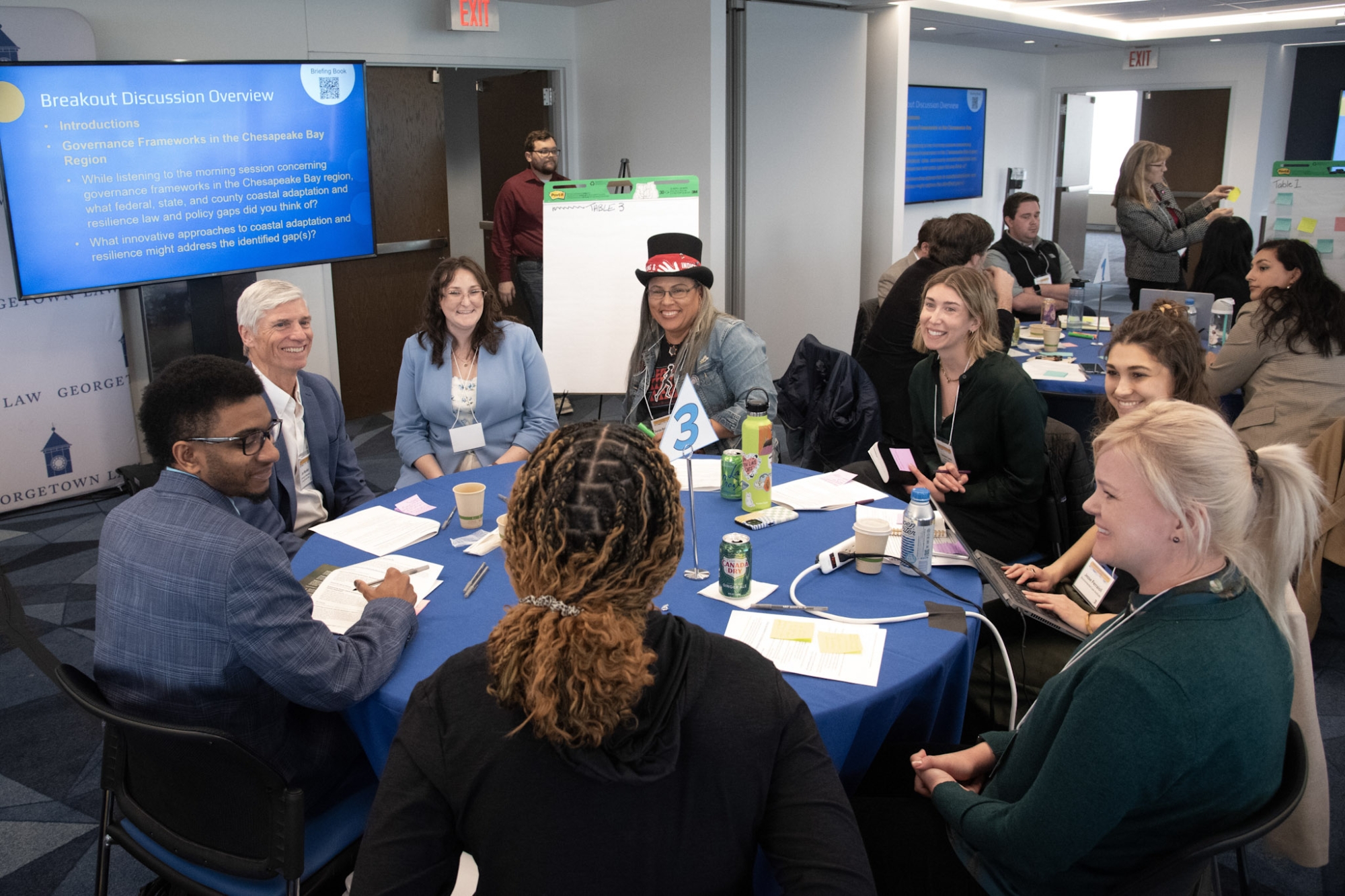
In the morning and afternoon, participants split into breakout groups that included a mix of professional backgrounds. They discussed which legal and policy gaps present the biggest adaptation challenges, and they proposed possible solutions.
Key takeaways from the breakout discussions included the importance of:
- incorporating Indigenous perspectives and ecological knowledge
- securing consistent and sustainable funding from diverse sources
- incentivizing the adoption of resiliency measures via economic rationales, such as tax incentives, grants, and loan programs
- enhancing public education and engagement efforts
As the threats of climate change reach the shores of the Chesapeake Bay, scientists, lawyers, policymakers, and communities must come together to weave a strong, science-based net of laws and policies that help coastal communities adapt and thrive.
See all posts from the On the Bay blog
